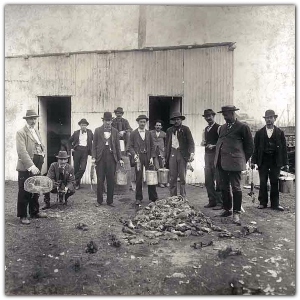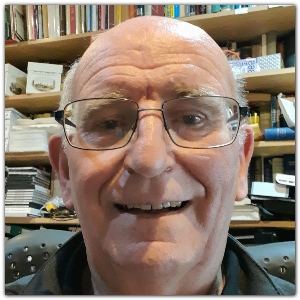
Ratcatchers
The 19th century saw a rapid rise in urbanisation, often resulting in overcrowding and congestion. This not only made things difficult for humans, but created an enticing environment for rodents. Rats threatened food supply and carried a potential risk of disease. As a result, and to combat this, a new profession arose – the rat catcher. This new industry was highly sought after, and in turn gave rise to modern rodent control. Speaker David Cufley will describe how the ratcatchers plied their trade and earned their money, including sporting events involving rats that took place in pubs.
This is the first of three talks in the Spring Potpourri Talks Series. The other talks take place on 22nd May and 26th June. You may book tickets for individual events or for all three talks in the series for a reduced price.
To book
Pre-booking is required, because the event link will be sent in advance.
To join this talk, you will need a computer device with speakers. Ideally, also a webcam and microphone. You also need to be able to access the internet from it. First-time users of Zoom, will be asked to download a small piece of software, which will be sent in advance.
To book – scroll down.
Image: The rat catchers, 1900, Photographic Collection from Australia, CC BY 2.0, via Wikimedia Commons web
Speaker
-
 David CufleyKent based tutor and speaker
David CufleyKent based tutor and speakerDavid Cufley is former President of North West Kent Family History Society. He is a member of a number of other family history societies and the British Brick Society.
David has been researching his family since 1966 when he worked in London, where he took advantage of his lunch hours to visit archives and Somerset House.He is a retired Professional Structural Engineer and has a BA(Hons) degree and a MSc degree in building conservation.
His main interests are the CUF(F)LEY one name study worldwide, building history and compiling the Brickmakers Index. David is interested in his ancestor’s other trades, which include ratcatching and calico printing.
David has spoken to and written for family history societies and other organisations on family history subjects. He also leads workshops for family historians.

